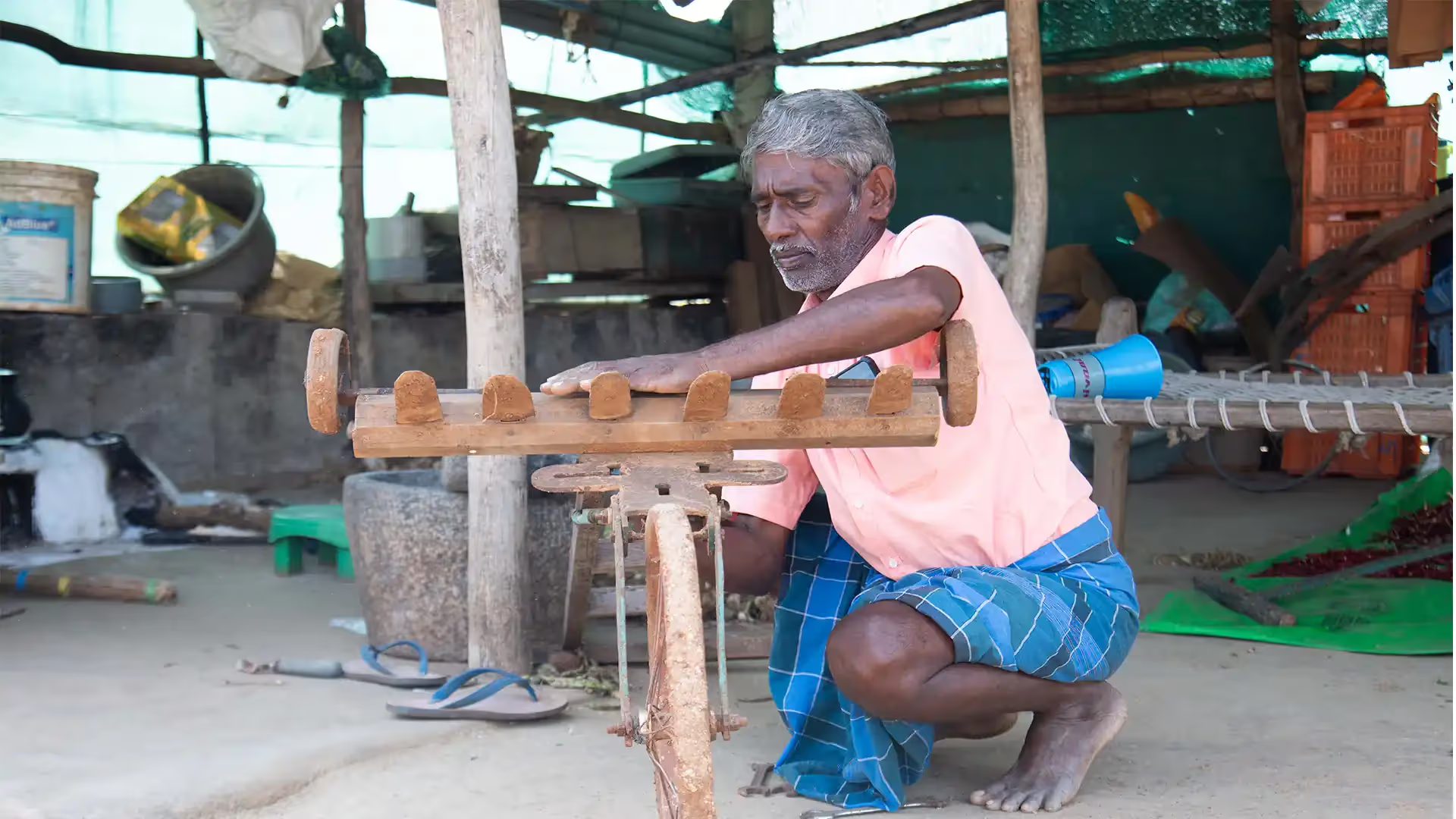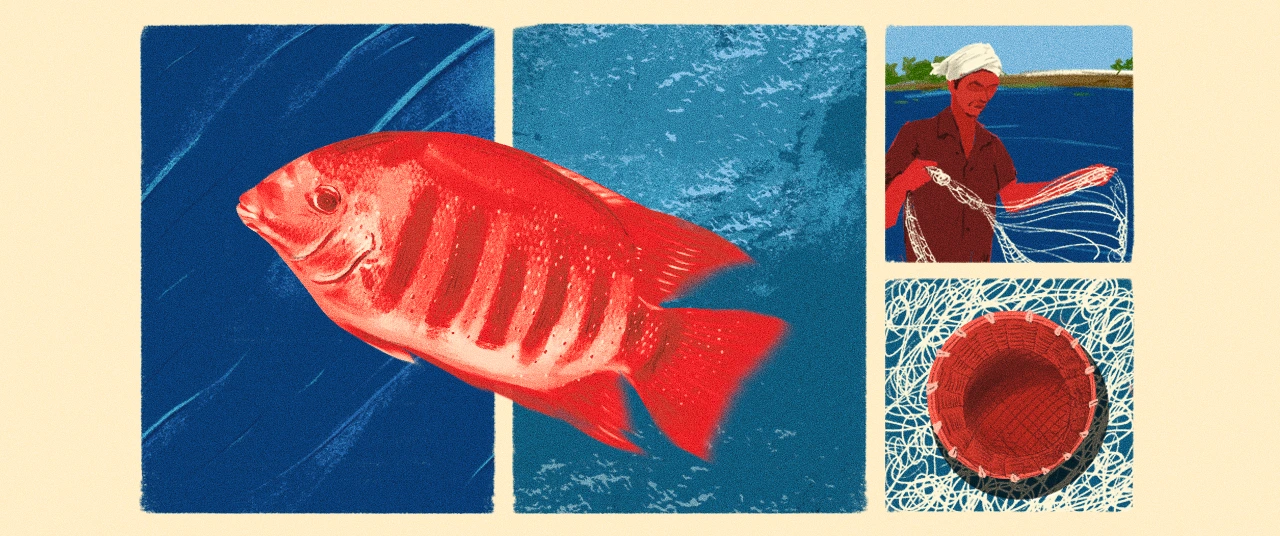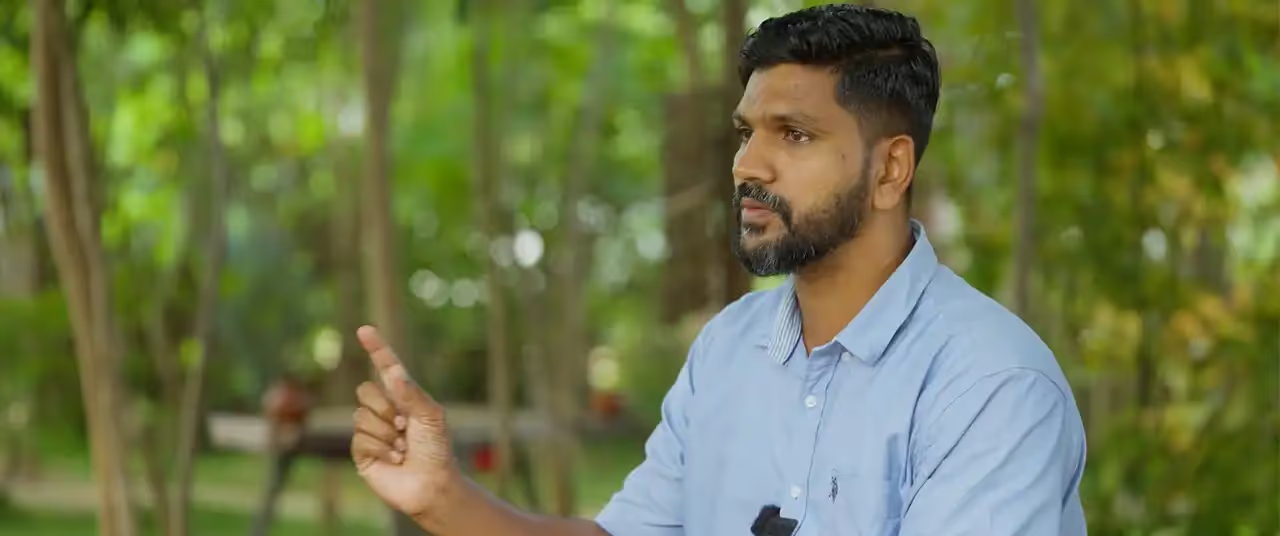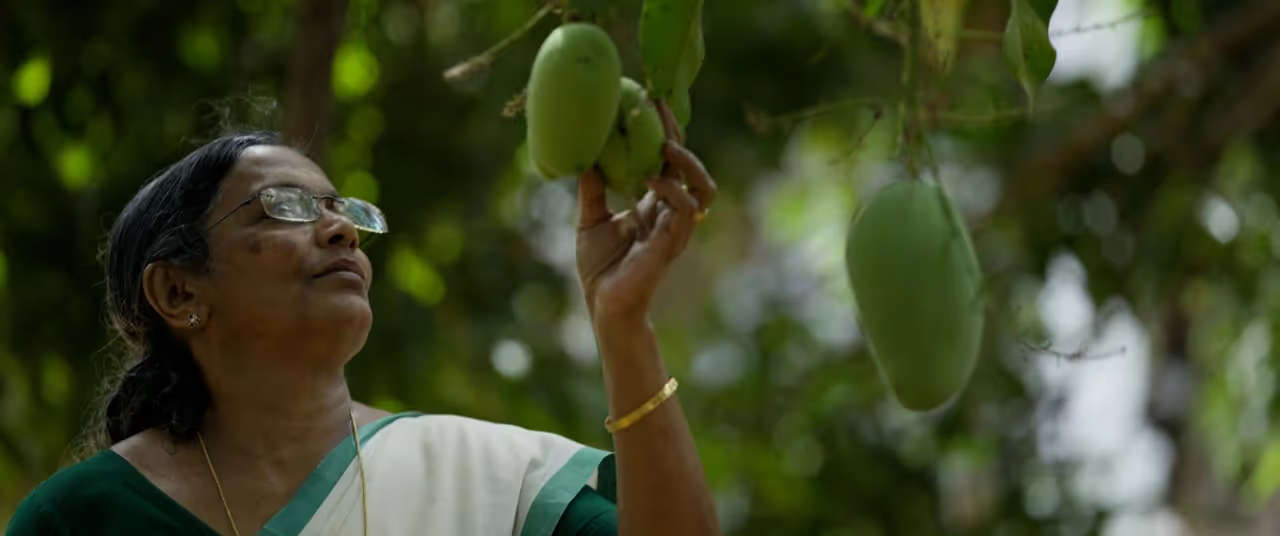Tamil Nadu-based Selvaraj is proving that farming doesn’t necessarily have to be high-tech or high-cost






Selvaraj, a 58-year-old farmer from Sesurajapuram in Tamil Nadu, cultivates crops and ideas. A decade ago, when he faced a shortage of manual labour and was unwilling to rely on expensive, corporate-made machinery, he decided to take matters into his own hands.
Unable to afford industrial equipment, he began looking at everyday items—bicycle tyres, PVC pipes, wooden blocks and metal scraps—not as junk, but as raw materials for invention. His first creation was a simple weed cutter, fashioned from a bicycle wheel and frame, with a metal blade attached to serve as the cutting edge. Selvaraj's moment of epiphany was a result of his skills in carpentry. He began designing and putting together tools suited to his needs, soil and crops.
Since then, he has gradually built a range of farming tools, all crafted from discarded materials. His innovations have made farming more efficient for himself and benefited others in the region who struggle with limited access to fuel-run machinery. Selvaraj has earned the affectionate moniker of ‘Village Scientist’ for his ingenuity and grassroots engineering. What started out as a dire necessity on his farm has now evolved into a rewarding 'side quest' in his career.

Every farmer is constantly in search of an effective way to eliminate weeds, and Selvaraj was no exception. Determined to create a solution himself, he initially used wood to build a weeding tool but soon realised it was too difficult to work with. He then turned to old bicycle wheels of various sizes and, after several iterations and experiments, successfully developed a functional design. “After cutting the frame of the bicycle, I attached small wheels and tried rolling it,” he recalls.
He has also created a dedicated WhatsApp group where farmers can seek guidance and troubleshoot issues together. In the near future, he wants to create even larger tools powered by batteries, making small-scale farming easier.
Also read: How Shree Padre built journalism for farmers, by farmers
Today, Selvaraj’s handmade toolkit includes weed cutters, hand ploughs, and a versatile 3-in-1 tool that can be used for weeding, ploughing, and harrowing. Each one of these is made using inexpensive and readily available materials, making sure it is affordable and sustainable for the rest of the farmers as well. Unlike equipment sold to the farmers by corporations that often come at a high cost, Selvaraj’s tools are priced just enough to cover labour costs and materials, keeping them accessible to the farming community. For instance, if the cost of materials and welding for a weed cutter is ₹1,500, he sells it for ₹2,000—just enough to sustain his work without hefty profit margins.
Sharing online and offline
But Selvaraj’s work goes beyond just tool-making. The farmer, who grows a variety of crops on his 2.75-acre farm—from groundnut to tomatoes, carrots, beans, and millets—asserts that knowledge should be shared, not hoarded. “Ideas shouldn’t be kept secret. The farmer who learns from me will teach someone else to make the tools,” he says. He freely shares his expertise, teaching others how to build and use these tools effectively. Moreover, farmers from across the Krishnagiri district—where his village Sesurajapuram is located—and neighbouring districts seek his advice on crop quality, harvesting techniques, and ways to control pests. Whether in person or over the phone, Selvaraj is available to help fellow farmers manoeuvre the evolving challenges of modern agriculture.
Also read: From barren to thriving: The Kalpavalli success story
Despite his lack of formal education, Selvaraj is also navigating the digital landscape. While many older farmers shy away from technology, he actively shares his farming experience on Facebook, YouTube, and WhatsApp to document and impart his learnings. Through these channels, he provides real-time updates on rain patterns, soil conditions, and farming techniques so others can benefit from his knowledge.
He has also created a dedicated WhatsApp group where farmers can seek guidance and troubleshoot issues together. In the near future, he wants to create even larger tools powered by batteries, making small-scale farming easier.
Against corporate influence
Selvaraj believes that farming is about more than just producing food; it is about maintaining autonomy and resisting the growing corporate sway on our plates. He says that corporations are making it increasingly difficult for independent farmers to thrive, pushing expensive machinery and chemical-dependent agriculture. Selvaraj suggests that self-sufficiency through DIY tools and organic farming can be a solution.
However, he also acknowledges the challenges an organic farmer faces. “Whatever we do, the market decides the price. They don’t value the merit of organic vegetables. Vegetables grown without chemical fertilisers won’t be big in size,” he laments. Despite this, he wants to remain committed to sustainable farming and wishes that others do the same.
Clearly, Selvaraj’s inventive spirit extends beyond the soil and ploughs. In his free time, he crafts bamboo flutes not for profit, but for pure joy. He has taught himself how to play, losing himself in the melodies he creates and sharing them with the world. Like his tools, his flutes prove that even simple materials can be turned into something extraordinary if one wishes to.
Selvaraj’s deeds prove that farming doesn’t necessarily have to be high-tech or high-cost. One primarily has to be creative, resilient and connected to the earth.
Also read: A man dreamt of a forest. It became a model for the world
{{quiz}}
Explore other topics
References










